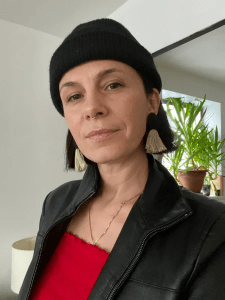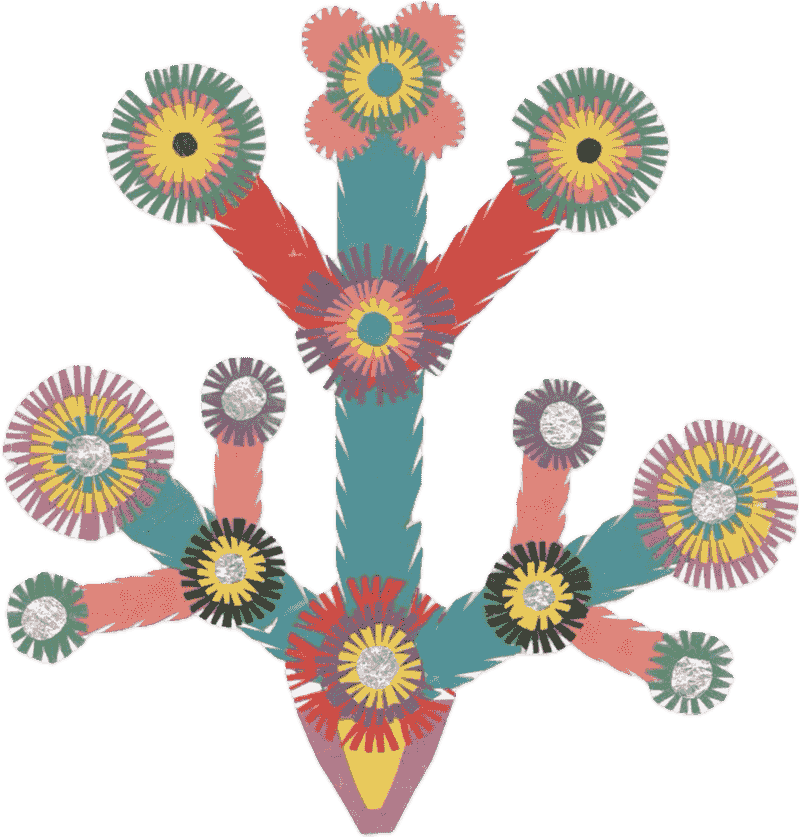
where the body of water changes
Trauma-Informed, Relational, Somatics-Based Psychotherapy
Agnieszka (Aga) Forfa, MSW, RSW, SEP

about
Welcome! I’m Aga (she/her), a queer therapist rooted in somatic, relational, justice-oriented and trauma-informed practice. I provide a space where your full self can be seen, heard, and honored.

About Me:
I am a social worker, somatic psychotherapist and a faculty member in mental health education with over 10+ years of experience.
Currently based in Toronto, Ontario (Dish with One Spoon territory), I was born on the Baltic shores of Soviet Communist Poland. I am white, middle-aged, Slavic/Eastern European, cis, queer, 3rd culture kid who grew up in a working class immigrant/refugee household + community. I live with non-apparent disabilities, and have significant experiences caregiving for a beloved with a terminal illness, including navigating the medical system.
I am always seeking to be attentive to relationships with ancestors, land and each other, and link arms with unsettling, healing and justice. My work is rooted in principles of liberation psychology, which centres lived experience, critical awareness, collective care, and the understanding that healing and justice are deeply interconnected. Personally, that also means connecting my work and services to larger struggles. Please see the FAQ for pro-bono ways to work with me if you are engaged in community organizing, Indigenous land defense and Palestinian solidarity work.
Beyond my clinical and teaching work, I have a long-standing creative practice, engaging the folk and craft practices of my Kurpie ancestors, including basket-making and textile work.

Who I Work With:
Individuals, 18+. In particular, I have experience and passion in supporting activists, community organizers, care-givers, front line social service and health care workers, queer/trans folks and immigrants/refugees.
My training and clinical experience is particularly useful for trauma work (shock, single incident and complex/developmental); symptoms of anxiety, depression & burn out; finding safety, vitality, and presence after experiences of overwhelm; and restoring rhythms of rest, movement, and connection.

Training, Experience and Supervision:
- Master of Social Work (2 year program with clinical internship + supervision)
- Registered Social Worker in good standing with the OCSWSSW
- Janina Fisher’s Working with the Body in Trauma Healing (Levels 1, 2 + 3)
- Narrative Therapy Intensive (40 hours)
- Somatic Experiencing (3 Year Post-Graduate Training, certified SEP)
- Kathy Kain: Somatic Skills for Trauma Therapists (1 year, Advanced Training) - in process
I primarily draw on the above approaches in my practice. For a full list of past trainings, please feel free to reach out. I remain actively engaged in ongoing professional development, as well as clinical and peer supervision, to sustain the depth, integrity, and responsiveness of my work.
Before entering clinical practice as a social worker + therapist in 2015, I spent 10+ years in front line social service work, including: harm reduction, case management, street outreach, queer + trans mental health group facilitation, sex worker support, housing advocacy and shelters. Because of this background, I really encourage frontline workers, community-facing providers, especially those impacted by the grief, loss and trauma of the drug-poisoning crisis to get in touch.
Since 2012, I have also been developing and facilitating workshops, curriculum, support groups, and programming within Mad/Disability Justice and mental health peer-led spaces.
what to expect in a session
In a typical session, we slow down and listen together to what your body is sharing; through sensations, breath, movement, or pauses of stillness. Rather than focusing only on talking, we follow your body’s wisdom, letting what needs attention emerge at a pace that feels manageable. This might look like tracking sensations, noticing shifts in breath, or experimenting with small movements. There’s always space for dialogue if you want it, but meaning-making is not the main focus. Questions about what you are feeling in your body, as well as about your thoughts and emotions are an important part of this work. However, we will start with where you are at, and sometimes that means working up to a felt-sense of the body and building a sensation vocabulary in slow way.
We begin sessions with a check-in and orientation, noticing how you are arriving and creating a sense of resourcefulness before moving into deeper work. This settling process helps your nervous system land and allows us to move gradually, in small digestible steps. Instead of diving into overwhelming experiences, we touch into activation and then return to steadiness, which helps your system release what has been held without becoming overwhelmed. Along the way, you might notice subtle shifts, like a fuller breath, softening tension, or small movements that arise naturally as your body completes what was once interrupted. These changes can bring relief, clarity, and a greater sense of aliveness.
Our work is collaborative and honours your lived experiences, culture, and history as essential parts of the healing process. I bring a trauma-informed, relational and politicized lens, acknowledging that our bodies carry the impacts of systems like racism, colonization, patriarchy, and capitalism alongside personal and ancestral stories. My perspective is that healing is not about “fixing” but about moving toward a more whole, alive, and dignified sense of self.
I hold therapy as a space of authenticity, where all parts of you can be present. I strive to bring warmth and ease into the room, inviting honest feedback and allowing the work to take shape in a way that feels aligned and supportive.
Sessions are 50 minutes, and scheduled weekly or bi-weekly. All sessions currently take place virtually.
what is somatics
Our bodies remember joy, resilience, survival and trauma – quite literally. Somatics takes this knowing, and supports us to have new or different responses, often based in an increased capacity and more aliveness; allowing us to take a different embodied shape, one more aligned with our inherent dignity and wisdom.
Somatic psychotherapy can be understood as a modality that supports us to renegotiate trauma, so that a charge or numbness can be released from the body, while honoring everything that shows up along the way, including dissociation. Considering that trauma can be understood as “too much too fast, or too little too often”, somatics usually works gradually, supporting our capacity to grow into our new shapes, and not overwhelming the system with sensation.
Oftentimes therapy can be ahistorical and decontextualized from systemic and societal structures and experiences. Politicized somatic psychotherapy recognizes that society and history (personal, family, community and systemic) are all a source of shaping us. In other words, we are shaped and hold the impacts of racism, patriarchy, whiteness and white supremacy, capitalism etc. These are not abstract concepts, but lived and living experiences in our bodies.
++++++++++++++++++++++++++++++++++++++++++++++++++++++++++++++++++
Below from: Prentis Hemphill, Finding Our Way podcast, S1Ep5
"The western world puts a name on things, oftentimes a white guy's name on things, and pretends it's new. But all of our cultures have practices. Most cultures ARE practices of embodiment. Our dancing, our singing, our relationship to land, the places where we make contact, the stories we create to make meaning of our lives, all of that to me is somatics.
The word somatics exists in a Western context to point out the break that happened between our minds and our bodies. Somatics doesn't make sense in some ways, without that break having happened, it's a term and a field of study that emerges from that break of colonization. But before that, we still practiced embodiment. Before that, there were still practices across the world that helped us feel ourselves and our internal worlds.
There's absolutely a white washing of the field, but it's also because we have not been taught to look at our own practices as knowledge. We're not always trained to look at the little morsels of truth that have been passed down through the subtlest of movements and motions...It's important for us to keep looking in, looking in our own lives and our own histories, for the route of embodiment"
~ Prentis Hemphill, Finding Our Way Podcast, S1Ep5
More of Prentis' work can be found here: https://prentishemphill.com/, including The Embodiment Institute: https://www.theembodimentinstitute.org/ and the Black Embodiment Initiative: https://www.theembodimentinstitute.org/bei
FAQ
What Are Your Fees?
Single Session Fee (50 minutes): $160
Flexible fee options may be available, please don’t hesitate to ask.
How Often Do We Meet?
Sessions are typically scheduled weekly or every other week, as consistent engagement tends to produce the best outcomes based on my experience.
What Is Your Payment + Cancellation Policy?
Fees for sessions are to be paid on the day of the appointment. To cancel or reschedule, at least 24 hours’ notice is required. Appointments missed or cancelled with less than 24 hours’ notice will be billed at the full session fee.
Do You Offer Crisis Support?
As a solo practitioner, I cannot provide crisis support or urgent scheduling. I will do my best to direct you to appropriate resources when available, but I do not offer therapeutic support via email or text between sessions.
Are Sessions Covered by Insurance?
Most student and employee health plans cover social worker services, but please check with your insurance provider to verify coverage.
Where Is Your Office?
I practice virtually from Toronto, Ontario.
Do You Offer a Free Consultation to See If We Are a Good Fit?
Yes! Please get in touch. I would be happy to connect for about 20 minutes, and answer any questions you may have.
Are There Other Options For Working With You?
Yes! I provide sessions through the Resistance Resilience Network. A network that provides free mental health support to individuals facing burn out resulting from the demands of activist work and/or Indigenous land defense. More information here: https://resistanceresilience.com/. I am also a listed provider with RUH Care: Palestine Mental Health Support, offering pro-bono sessions. More information here: https://www.ruhcare.com/palestine.
contact
Get in touch for a curiousity call, I offer free 20 minute consultations.


